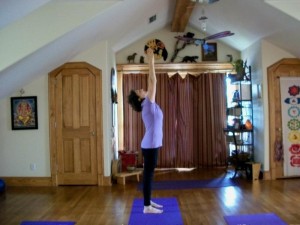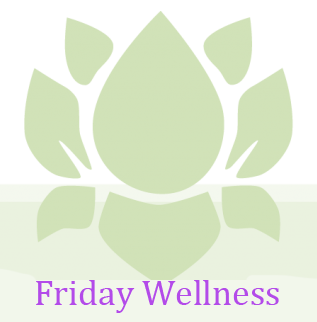 “The practice of yoga can be done by anyone at any age with the proper instruction. Yoga for women is particularly recommended. The practice of yoga can be the answer to vibrant health, calmness of nerves, alertness of mind and ultimately of spiritual repose. There are specific yoga practices that support us women in all conditions and circumstances in our daily lives. Yoga has a tremendous effect on character and supports moral and mental strength. Our approach to life becomes more positive and tolerant. Find a teacher and begin today. I have been focused most of my life on feeling good and being well, whatever that entails. I have and do practice many, many modalities with the purpose of getting that accomplished. So having experienced the benefit, and continue to do so, of the practice of yoga – just one of the practices in my repertoire, I am fulfilling a facet of my life’s mission in sharing this dynamic practice with others so you can receive a positive life experience also.” Blessings, Katherine
“The practice of yoga can be done by anyone at any age with the proper instruction. Yoga for women is particularly recommended. The practice of yoga can be the answer to vibrant health, calmness of nerves, alertness of mind and ultimately of spiritual repose. There are specific yoga practices that support us women in all conditions and circumstances in our daily lives. Yoga has a tremendous effect on character and supports moral and mental strength. Our approach to life becomes more positive and tolerant. Find a teacher and begin today. I have been focused most of my life on feeling good and being well, whatever that entails. I have and do practice many, many modalities with the purpose of getting that accomplished. So having experienced the benefit, and continue to do so, of the practice of yoga – just one of the practices in my repertoire, I am fulfilling a facet of my life’s mission in sharing this dynamic practice with others so you can receive a positive life experience also.” Blessings, Katherine
Private Classes
| One hour class at Starlight Ridge | $65 |
| Eight, one-hour class package at Starlight Ridge | $435 |
| One hour class at your location | $85 |
| Eight, one-hour class package at your location | $575 |
- Are you ready to drop that excess weight?
- Are you ready to improve your mood and outlook on life?
- Are you ready to be relaxed and better able to manage your day to day existence?
Join us! You will be glad you did.
Katherine teaches yoga as a holistic way to bring the body, mind, emotions and inner spirit into a state of optimal health, balance and harmony. Yoga is a safe, natural method to promote healing and restore health and wellbeing. You can expect to improve joint and muscle flexibility, increase strength and endurance, normalize weight, improve posture, decrease back pain and much more. Yoga can clear the mind, set the immune system and orient your consciousness to create more health, happiness and joy in your life. It gives you access to the storehouse of resources built into our body and mind. The practice of yoga can also strengthen your entire nervous and glandular system. It prepares the mind for optimal clarity, enlivens your sense of awareness and gives you greater energy to express your creativity, inner wisdom and knowing as well as feelings of connectedness and wholeness.
What is Yoga?
 The practice of Yoga is a tuning up of the physical body, including muscles, internal organs, endocrine system, circulatory system producing more healthy functioning within the body. It will help improve posture and alignment, manage stress better, sleep better, reduce back and neck pain, increase coordination and balance, improve digestion and metabolism, and enhance your overall well-being. Yoga will wake up your body, sharpen your mind and clarify your spirit. It can be done by anyone if done gradually and according to instruction.
The practice of Yoga is a tuning up of the physical body, including muscles, internal organs, endocrine system, circulatory system producing more healthy functioning within the body. It will help improve posture and alignment, manage stress better, sleep better, reduce back and neck pain, increase coordination and balance, improve digestion and metabolism, and enhance your overall well-being. Yoga will wake up your body, sharpen your mind and clarify your spirit. It can be done by anyone if done gradually and according to instruction.
Hatha Yoga uses postures, breathing techniques and relaxation to help bring the body into a state of health and wellbeing. The postures are modified for individual physical levels of participation using props. This class is appropriate for all levels.
Restorative Yoga is a practice of yoga postures, breathing techniques, and relaxation utilizing props such as chairs, blankets, bolsters, pillows, etc. This class is for those times when you feel weak, fatigued, or stressed from your daily activities and when ill, or recovering from illness or injury.
Kundalini Yoga can clear the mind, set the immune system, and orient your consciousness to create happiness and health in your life. It gives you access to the storehouse of resources built into your body and mind. All exercises, meditations, and mantras are part of an organized sequence designed to produce a specific beneficial effect.
Children’s Yoga Your child will have a blast! They will stretch their bodies and their minds. Yoga creates balance, flexibility and invites quiet. It gives children a greater sense of self and is experiential and social.
Yoga to Relax and Renew with the use of props in specific nurturing postures, specific breathing techniques, soothing music and a very peaceful environment, you will ease away stress and tension, clear the mind, balance your emotions…find your inner quiet.
Yoga to Energy UP! A sequence of invigorating postures and breathing techniques to get your circulation moving, heart pumping, muscles toned and strong.
Yoga and Pain Management: An Ancient Strategy for a Modern Healthcare Challenge
by Nikhil Ramburn and Sat Bir Singh Khalsa, Ph.D.
Indeed, there is strong scientific rationale for the use of yoga, meditation, and other complementary approaches in the treatment of pain. National surveys consistently find that 30-40 percent of the US population use complementary approaches such as acupuncture, massage therapy, yoga, and meditation to alleviate their painful conditions. Mindfulness meditation may be effective at reducing chronic pain symptoms by modulating a host of endogenous neurochemical systems. The result is a significant reduction in pain-related brain activity and activation in higher-order brain areas such as the insula. One of the first mindfulness meditation trials in pain studies found that long-term Zen meditation practitioners required significantly higher levels of noxious thermal stimulation to report similar levels of pain as age-matched controls. Although the Zen practitioners showed significant activation of “sensory processing” brain regions, they showed a reduced activation in areas of the brain that evaluate pain.
Similar results were observed in North American long-term yoga practitioners, in a recent study conducted at the National Institutes of Health, who tolerated pain more than twice as long as control subjects not practicing yoga. The yogis also had more gray matter in the brain insular region, which correlated with pain tolerance. In an examination of the ways in which pain was tolerated by each group, the yogis were found to use yoga-based cognitive strategies, such as acceptance and increased interoceptive awareness, and behavioral strategies, such as relaxation and slow breathing, whereas controls tried to actively distract themselves or ignore the pain, which are less effective ways to manage pain. These findings suggest that yoga practice can teach us new ways to deal with sensory inputs and modulate our reaction to them.
The research of Lonnie Zeltzer (one of the speakers at the Kripalu conference), provides more evidence supporting the use of yoga for pain regulation. For example, a small randomized controlled trial using Iyengar Yoga included 26 female participants (mean age = 28 years) with rheumatoid arthritis. The intervention consisted of 6 weeks of classes held twice per week at the UCLA Pediatric Pain Program yoga studio where numerous yoga props such as blocks, blankets, and bolsters were available to support subjects with a limited range of motion. The women attended 96 percent of the yoga classes, suggesting a high degree of feasibility of yoga therapy for this population. Furthermore, the yoga intervention group showed significantly greater improvement on measures of pain disability and general health and vitality scores when compared to control subjects not practicing yoga, but assigned to a delayed yoga treatment condition. Follow-up data after the end of the yoga intervention showed that those improvements were maintained after 2 months, suggesting the long-term gains of a yoga intervention.
Another study by Zeltzer et al. assessed the impact of a 6-week Iyengar Yoga intervention on irritable bowel syndrome (IBS) symptoms in adolescents and young adults. Although the attrition rate was greater with this population, subjects still attended 75 percent of classes and results showed improvements in pain, psychological distress, fatigue, sleep, and quality-of-life scores. The young adult subjects (aged 18–26 years) reported significantly improved IBS symptoms when compared to untreated control subjects, whereas the teenagers (aged 14-17 years) saw more benefits in physical functioning. Both studies by Zeltzer et al. suggest the suitability of yoga for managing chronic pain in adolescents and young adults.
These encouraging findings are emerging in the context of new developments in the field of pain psychology which suggest that pain is an actively constructed experience and can be modified through learning and mind-body behavioral strategies. We have seen how yoga can develop the skill in practitioners to modulate their pain response through cognitive strategies such as breathing, relaxation, acceptance, and increased interoceptive awareness.
The potential benefits of complementary therapies such as yoga are all the more important due to the current opioid epidemic. In fact, the guidelines released in May 2017 by the Food and Drug Administration (FDA) recommends that doctors look at nonpharmacological approaches, such as complementary therapies, in managing acute and chronic pain and, in 2010, the Office of The Army Surgeon General Pain Management Task Force Report listed yoga as a Tier 1 treatment modality for pain management.
Payment options are cash, checks, and major credit cards.
Schedule this dynamic opportunity today, either in person, by telephone at (501) 470-9801, or by email at katherine@fridaywellness.com.
